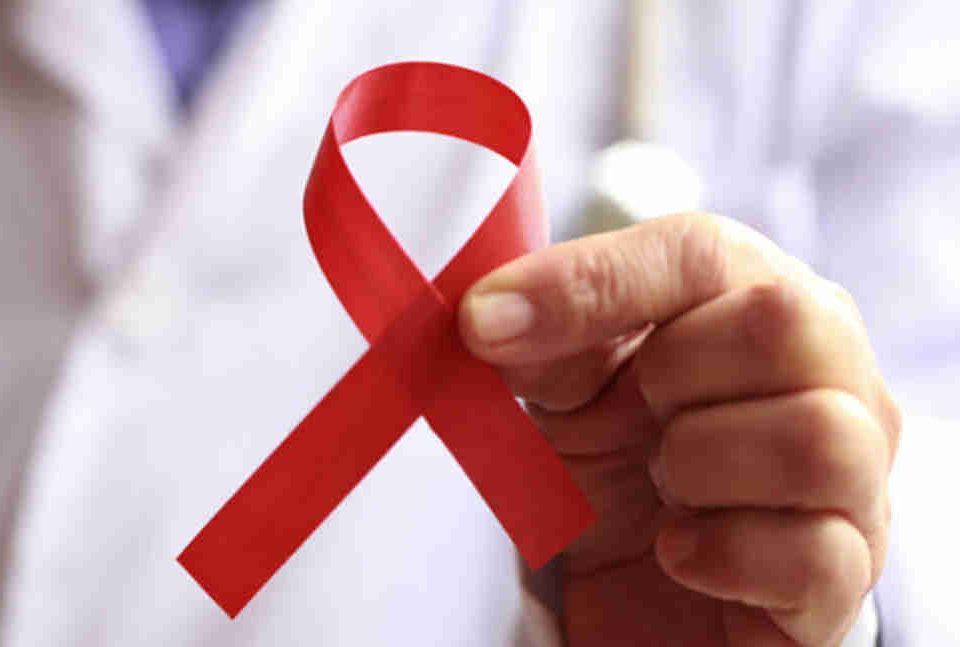- 如有疑问,请联系电邮
- customer@ihealth66.com
USNEWS:睡眠和肺癌之间有联系吗-褪黑素真有大作用!

USNEWS:女性如何来降低肺癌死亡的风险?
2019年4月10日
USNEWS:维生素B和肺癌之间有联系吗?
2019年4月12日By Elaine K. Howley
我们都知道晚上睡个好觉对身体健康有好处。但这个基本的经验法则可能比我们意识到的更适用于癌症。新兴科学已经开始表明,睡眠的关键功能可能更多地与你是否患了癌症,尤其是肺癌,以及癌症进展有多快有关。
科学家们仍在探索睡眠与各种癌症的发展和进展之间是否存在关联,以及如何关联,但有一些证据表明,肺癌与睡眠之间存在关联,这与另外两种情况有关:昼夜节律紊乱和阻塞性睡眠呼吸暂停。
美国国家睡眠基金会(National Sleep Foundation)将昼夜节律定义为“基本上是一个24小时的内部时钟,在你大脑的后台运行,在困倦和警觉之间定期循环。”这也被称为你的睡眠/觉醒周期。”
尽管我们对昼夜节律的作用仍有很多需要了解,但最近对轮班工作对身体影响的研究表明,夜间工作很可能会增加患某些癌症的风险。尽管大部分研究都集中在乳腺癌上,但有一些迹象表明,打乱你的昼夜节律也可能与罹患消化系统和肺部癌症的风险略高有关。
克利夫兰诊所(Cleveland Clinic)睡眠障碍研究主管雷纳梅赫拉(Reena Mehra)博士说,炎症免疫反应可能是这些联系背后的机制。“这是一个新的研究领域,研究正在兴起,但最终的目标是看看我们能否通过利用我们对昼夜节律的理解,以及它与健康之间的联系,采取一些干预措施,减轻癌症的症状、延缓癌症的进展,以及更好地治疗癌症”。(所谓的时间疗法是一个正在发展的领域,是针对几种癌症的治疗方法,它会根据昼夜节律来调整药物和其他治疗方法的使用时间,以改善身体的反应。)
尤其是肺癌,另一个值得关注的领域是阻塞性睡眠呼吸暂停。患有这种疾病的人在睡觉的时候会停止呼吸,导致血液中的氧气含量降低。芝加哥大学儿科、神经科学和神经生物学教授、芝加哥大学医学中心(University of Chicago Medical Center)儿科睡眠医学医生戴维·戈扎尔(David Gozal)博士说:“解决这个问题的最好办法是醒过来。”
戈扎尔和他的团队在动物身上进行了几项研究,观察体内这些氧气下降的影响,即间歇性缺氧。2016年发表在《CHEST》杂志上的一项研究发现,在同时患有肺肿瘤和睡眠呼吸暂停症的小鼠中,“肿瘤增殖更快,局部更具侵袭性,”他说。这个模型没有看转移性疾病——第四阶段癌症已经扩散到其他器官,但同时说理论为什么睡眠呼吸暂停似乎恶化预后是这些睡眠中断导致的改变“免疫系统对肿瘤的存在。”看来,醒来后,这些细胞往往会丧失一些识别、对抗或摧毁癌细胞的能力。
此外,戈扎尔还发现,“许多癌细胞在间歇性缺氧的环境下,分化能力往往较差。”换句话说,它们变得更像干细胞,这对癌症来说是一个不好的信号。分化程度越低的这些细胞就越具有侵略性,它们越有可能快速增殖并侵入其他组织,变得非常具有侵略性。当你多次醒来试图屏住呼吸时,显然会对肿瘤的生长产生影响,”他说。此外,睡眠中断似乎改变了免疫系统的工作方式,这“对我们抵御癌症起到了负面作用,促进了这些肿瘤的增殖和局部侵袭。”
即使你没有睡眠呼吸暂停,仅仅是肺癌就会损害一些人的肺功能,这也会导致睡眠中断。梅赫拉说,在一些病人中,一种叫做“胸腔积液”的情况会导致肺部周围积液,使呼吸更加困难。支气管内疾病患者有时会发展成肿瘤侵入气道。“肺癌有很多亚型,还有一些(症状)有时可能会干扰睡眠。”
Ulysses Magalang,内科和神经科学教授和睡眠障碍中心主任瓦克斯纳俄亥俄州立大学医学中心,说很多肺癌患者也有慢性阻塞性肺疾病和其他肺部疾病,可影响肺功能和导致睡眠质量的损失,同时也提升了在某些情况下患肺癌的风险。“患有肺癌的人可能无法平躺在床上睡觉,”他指出。仅仅是得知你得了癌症的消息也会对睡眠质量产生负面影响,因为焦虑和恐惧会随之而来。“我们知道压力会影响睡眠。”化疗药物有时也会扰乱睡眠。马加朗说:“所有这些因素都会影响你是否能睡个好觉。”
那么,如果你担心自己患肺癌的风险,或者想在治疗期间得到最好的休息,你能做些什么呢?“良好睡眠的基石是行为技巧。因此,保持有规律的就寝时间和起床时间是一个优先事项,”Magalang说。他还建议使用放松技巧,如睡前冥想或正念练习。“此外,要确保卧室在睡眠时间完全变暗,因为光线会产生警示作用。”即使医生给你开了安眠药的处方,让你在积极治疗肺癌的过程中暂时使用,马加朗建议你仍然要使用良好的睡眠卫生技术。
梅赫拉建议,每天晚上要保证7到8小时的睡眠,白天不要打盹,控制疼痛。“如果有与肺癌相关的疼痛——例如,如果癌症已经扩散到骨骼——通常会引起很大的疼痛。因此,治疗疼痛以确保不影响睡眠是非常、非常重要的。”
如果你还没有患癌症,但是担心自己的风险,或者已经知道遗传风险因素,那么注意你的睡眠。“我们没有公司数据显示,治疗睡眠呼吸暂停会减少你的癌症发展的可能性,”梅拉提出说,“当然,我们机械的数据表明,间歇性缺氧,如果不及时治疗,会增加炎症和氧化应激参与哪些我们知道这些癌症发展的途径。昼夜节律也是一样——尽可能减少夜间的光照。这很有帮助,因为(夜间的光线)会抑制褪黑激素的分泌,而褪黑激素是一种帮助你入睡的激素。她说:“晚上暴露在光线下会抑制褪黑激素分泌,而褪黑激素本身就具有抗氧化的特性。”
WE ALL KNOW THAT getting a good night’s rest is helpful for overall health and wellness. But that basic rule of thumb may be even more true than we realize when it comes to cancer. Emerging science has begun to suggest that the critical function of sleep may have more to do with whether you develop cancer, particularly lung cancer, and how quickly it progresses.
Scientists are still unraveling whether and how sleep and the development and progression of various kinds of cancer are linked, but there is some evidence indicating that there’s a connection between lung cancer and sleep related to two other conditions: disruption of circadian rhythm and obstructive sleep apnea.
The National Sleep Foundation defines circadian rhythm as “basically a 24-hour internal clock that is running in the background of your brain and cycles between sleepiness and alertness at regular intervals. It’s also known as your sleep/wake cycle.”
Although we still have a lot to learn about how circadian rhythm works, recent studies into the effects of shift work on the body have indicated that working nights may well elevate your risk of certain types of cancer. Although much of this research has focused on breast cancer, there is some indication that disrupting your circadian rhythm could also be associated with a slightly greater risk of developing cancers of the digestive system and the lungs.
Inflammatory immune response may be the mechanism underlying these connections, says Dr. Reena Mehra, director of sleep disorders research at the Cleveland Clinic. “We’re a young field and the research is emerging, but ultimately the goal is to see if we can do something to intervene to mitigate development of cancer, progression of cancer and better treat cancer” by leveraging our understanding of the circadian rhythm and how it’s connected to health. (So-called chronotherapy is a developing field of treatment for a few types of cancer that times the delivery of drugs and other treatments in sync with the circadian rhythm to improve the body’s response.)
With lung cancer in particular, another area of concern is a condition called obstructive sleep apnea. People with this condition actually stop breathing while they’re asleep, which leads to low levels of oxygen in the blood. “The best way to resolve that event is by awakening,” says Dr. David Gozal, professor of pediatrics, neuroscience and neurobiology at The University of Chicago and a pediatric sleep medicine physician at the University of Chicago Medical Center.
Gozal and his team have conducted a few studies in animals looking at the effect of these drops in oxygen in the body – called intermittent hypoxia. A 2016 study published in the journal CHEST found that in mice that had both lung tumors and sleep apnea, “the tumor proliferated faster and was much more aggressive locally,” he says. That model didn’t look at metastatic disease – stage 4 cancer that has spread to other organs – but Gozal says the theory why sleep apnea seemed to worsen the prognosis is that these sleep interruptions lead to a change in “the way the immune system responds to the presence of the tumor.” It appears that waking up often causes “these cells to lose some of their ability to identify and fight or destroy cancer cells.”
Further, Gozal found that “many of the cancer cells, when they’re exposed to intermittent hypoxia, have a tendency to become less well-differentiated. In other words, they become more stem-cell like, which is a bad sign for cancer. The less differentiated these cells are, the more aggressive they are and the more likely they are to proliferate faster and invade other tissues and be very aggressive. When you wake up many times trying to catch your breath, there is clearly an effect on the tumor growth,” he says. Again, it seems that disruption of sleep alters how the immune system works and that “plays against our defenses against cancer, facilitating both the proliferation and the local invasiveness of these tumors.”
Even if you don’t have sleep apnea, simply having lung cancer can impair lung function in some people, which can also lead to disrupted sleep. Mehra says in some patients, a condition called pleural effusion leads to an accumulation of fluid around the lungs that can make breathing freely more difficulty. And patients with endobronchial disease sometimes develop a tumor invading the airway. “There’s so many subtypes of lung cancer and also types of [symptoms] that can sometimes be sleep disruptors.”
Ulysses Magalang, professor of internal medicine and neural science and director of the sleep disorders center at The Ohio State University Wexner Medical Center, says that many patients with lung cancer also have chronic obstructive pulmonary disease and other lung diseases that can impact lung function and lead to a loss of sleep quality, while also elevating the risk of developing lung cancer in some cases. “Someone with lung cancer may not be able to lay flat while sleeping,” he notes. And simply getting the news you have cancer can also negatively impact sleep quality as anxiety and fear set in. “We know that stress causes disruptions of your sleep.” Chemotherapy drugs also sometimes disrupt sleep. “All these factors play into whether you’ll be able to get a good night’s sleep or not,” after a lung cancer diagnosis, Magalang says.
So what can you do if you’re concerned about your risk of developing lung cancer or aiming for the best rest possible during treatment for the disease? “The cornerstone for a good night’s sleep would be behavior techniques. So make keeping a regular bedtime and wake-up time a priority,” Magalang says. He also recommends employing relaxation techniques, such as meditation or mindfulness exercises before bed. “Also make sure the bedroom is completely darkened during the sleep hours, because light has an alerting affect.” Even if you’ve been given a prescription for a sleep aid to use temporarily while you’re in active treatment for lung cancer, Magalang recommends still using good sleep hygiene techniques.
Mehra recommends aiming for 7 to 8 hours of sleep each night, avoiding naps during the daytime and controlling pain. “If there’s pain related to the lung cancer – for instance, if the cancer has spread to the bone – that can oftentimes cause a lot of pain. So treating that pain to make sure that’s not disturbing sleep can be very, very important,” she says.
If you don’t yet have cancer but are worried about your risk or have known genetic risk factors, pay attention to your sleep. “We don’t have firm data in hand showing that treating sleep apnea is going to reduce your likelihood of cancer development,” Mehra says, “but certainly, we have mechanistic data that’s showing that intermittent hypoxia, if it’s left untreated, that’s going to increase inflammation and oxidative stress which we know are involved with these pathways of cancer development. Same thing with circadian rhythm – as much as you can, minimize that light exposure during the night. That’s helpful because [light at night] suppresses melatonin,” a hormone that helps you get to sleep. “Exposure to light at night is an issue that does not allow that melatonin to increase, and melatonin in and of itself can have antioxidant properties,” she says.





